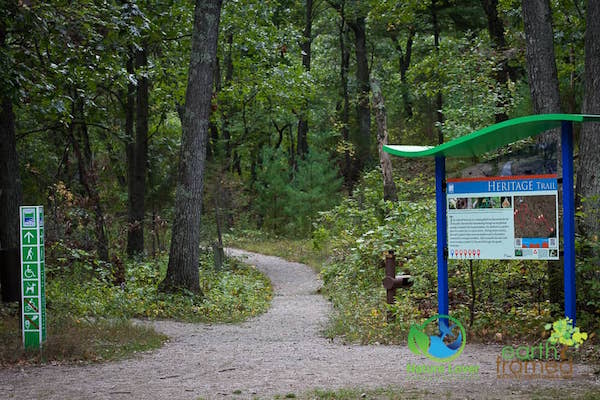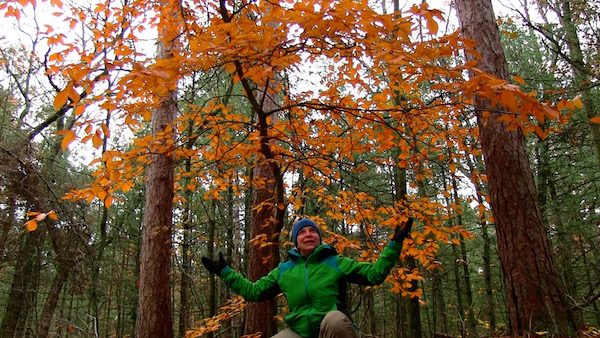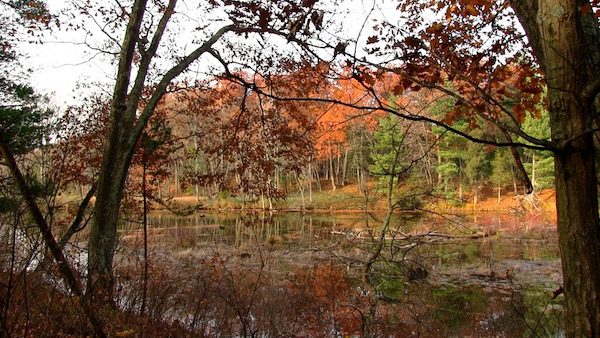The Heritage Trail is open year round at the Pinery. It is a 3 kilometre trail that is wheelchair accessible and offers a viewing platform to enjoy the cool breezes and wildlife that abound from the Old Ausable River. The relatively flat, easy hike meanders through some rare Oak Savanna habitat which is home to many bird species, fungi and wildflowers.
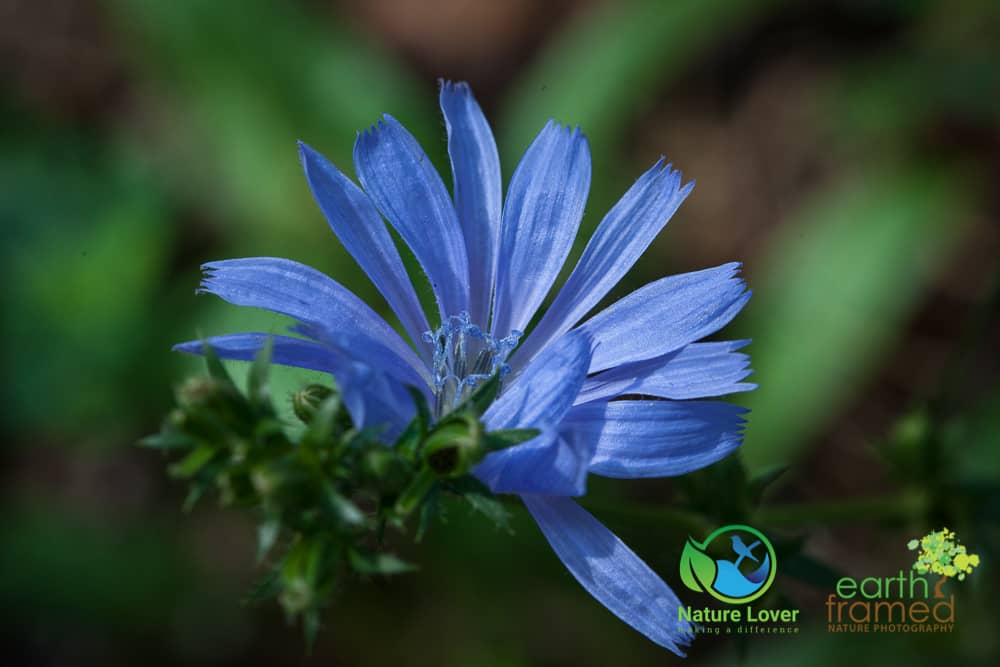
In October there were still a variety of wildflowers in bloom along the trail. I found many Chicory bright and vibrant.
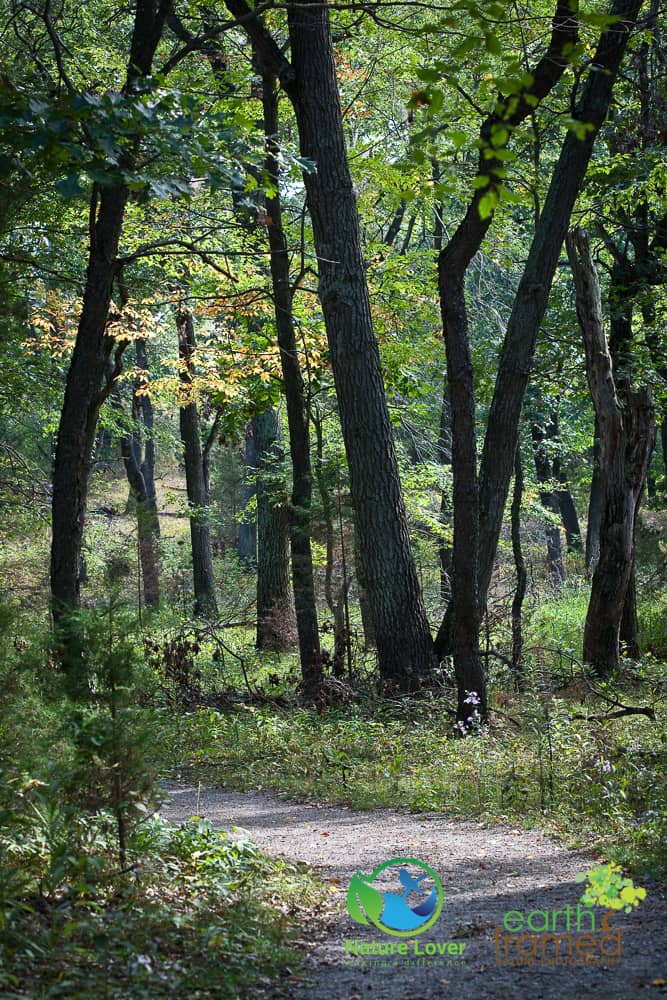
The trees were only starting to change. The Pinery’s forests are primarily pine or oak trees, so many of the trees will be green year round, while the oaks and some of the last tree species to actually change. The oaks will also hold on to their leaves until spring, unless high winds blow them off during the winter.
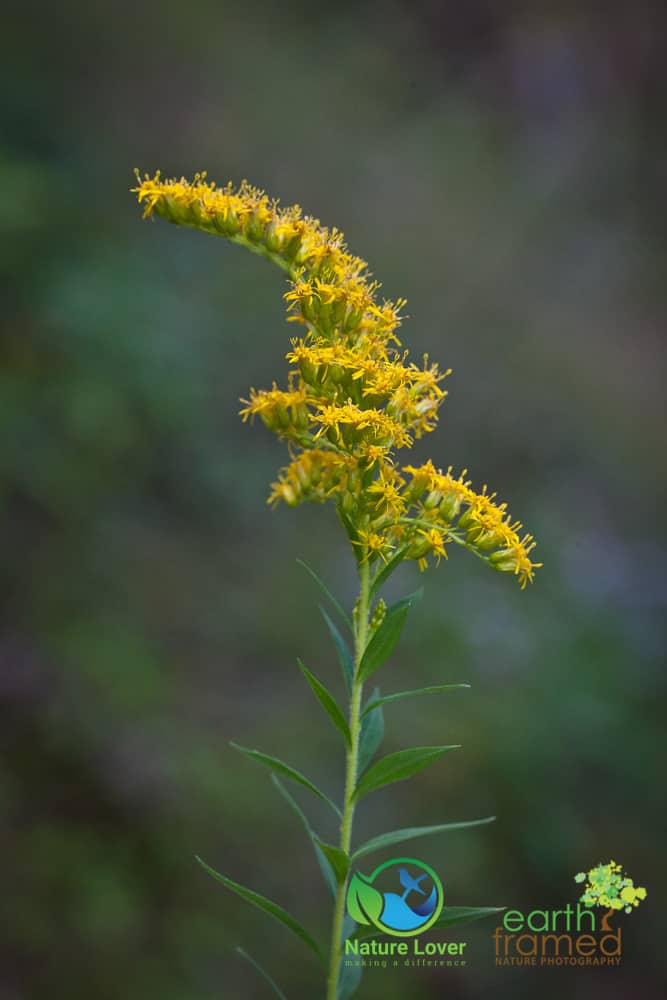
Goldenrod, which is a native species, was still blooming in a few areas of the trail. 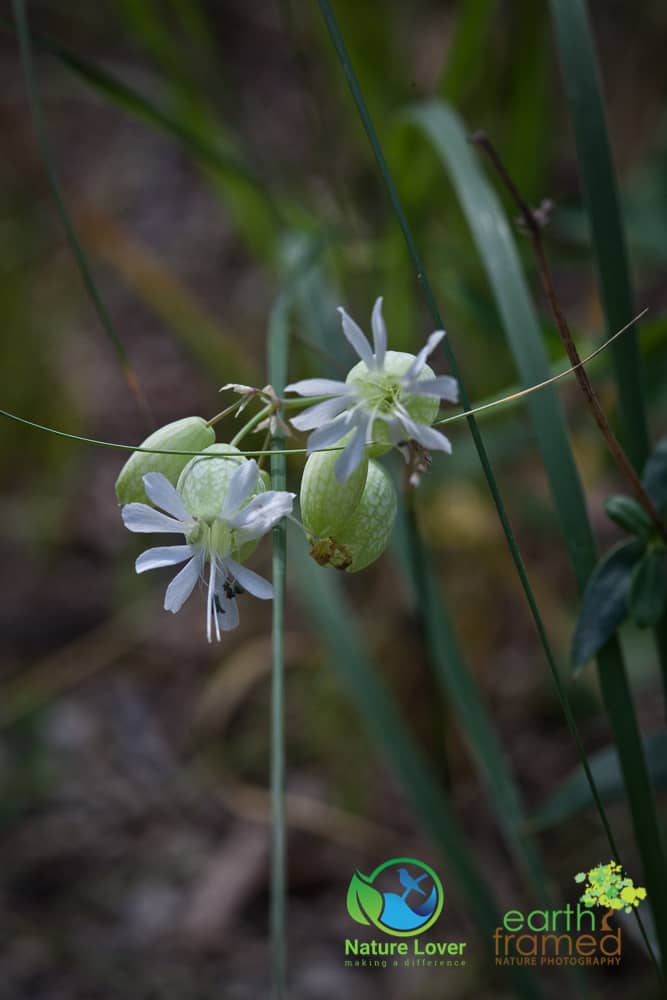
The non-native Bladder Campion, also known as Catchfly, can be found throughout most of North America. It’s flower petals are more ragged than the native White Campion flower which has the same range.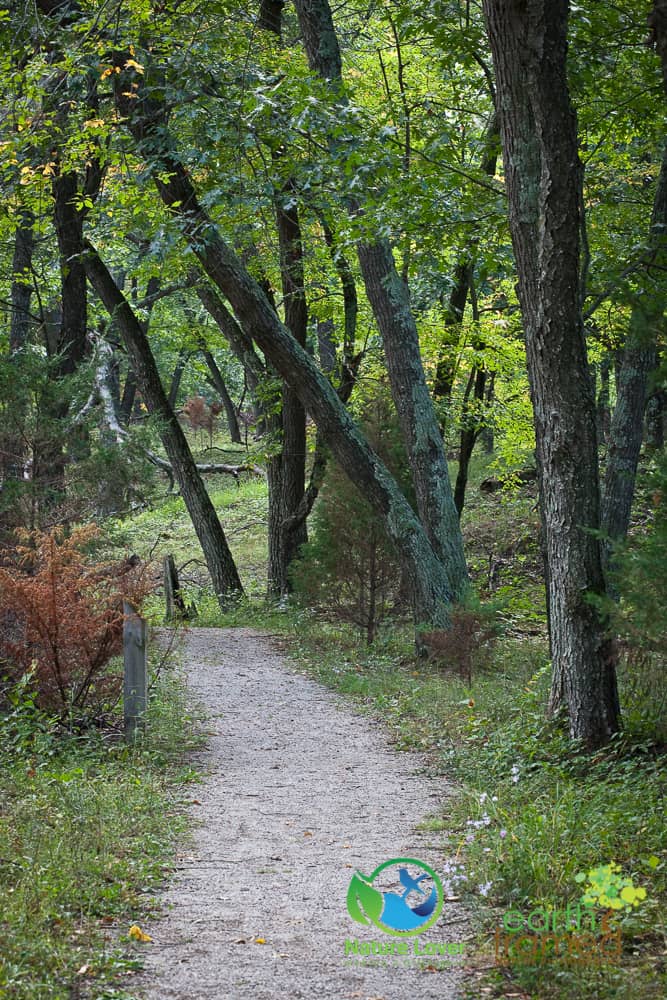
Heritage Trail is a pleasant and easy walk with views of sandy hills and a variety of oaks. The Pinery has at least 7 different species of oak.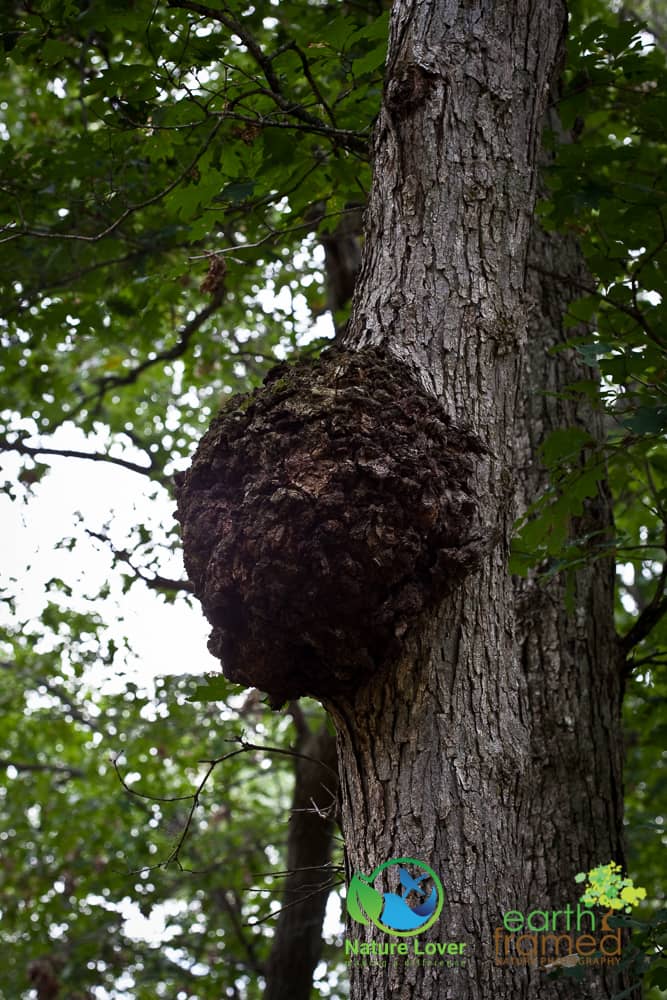
Burls can be found on different trees and are the result of some form of stress, like an injury, virus or fungus. Some burls are attached to the roots, while others, like the one above, can be seen on the side of the tree trunk.
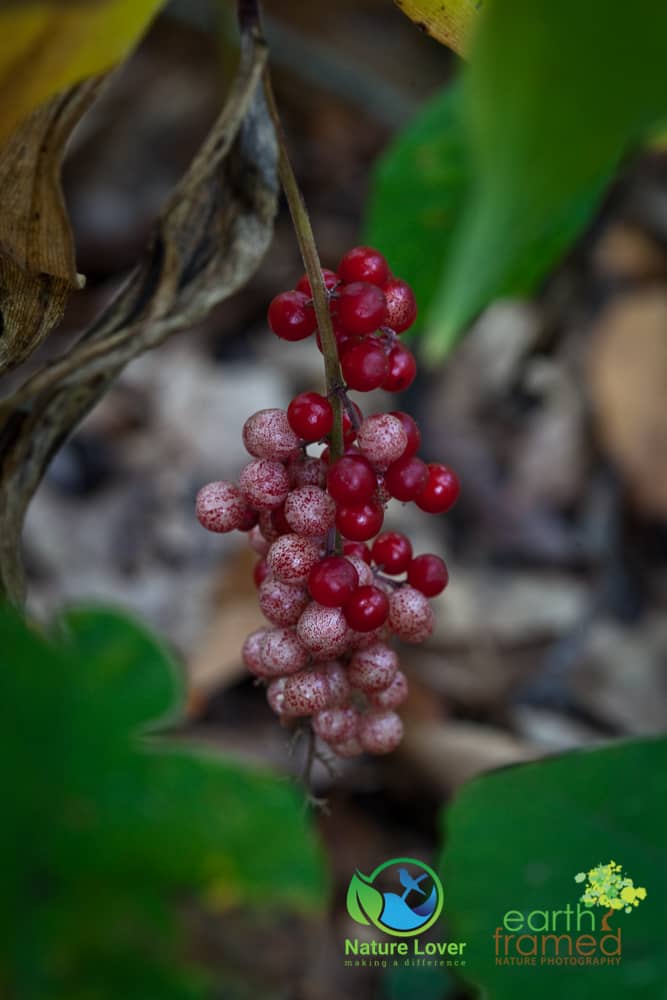
The fall is time for flowers to produce colourful fruit which are often enjoyed by birds or some rodents. False Solomon’s Seal bears its fruit at the end of the stem, the same location as its flowers. 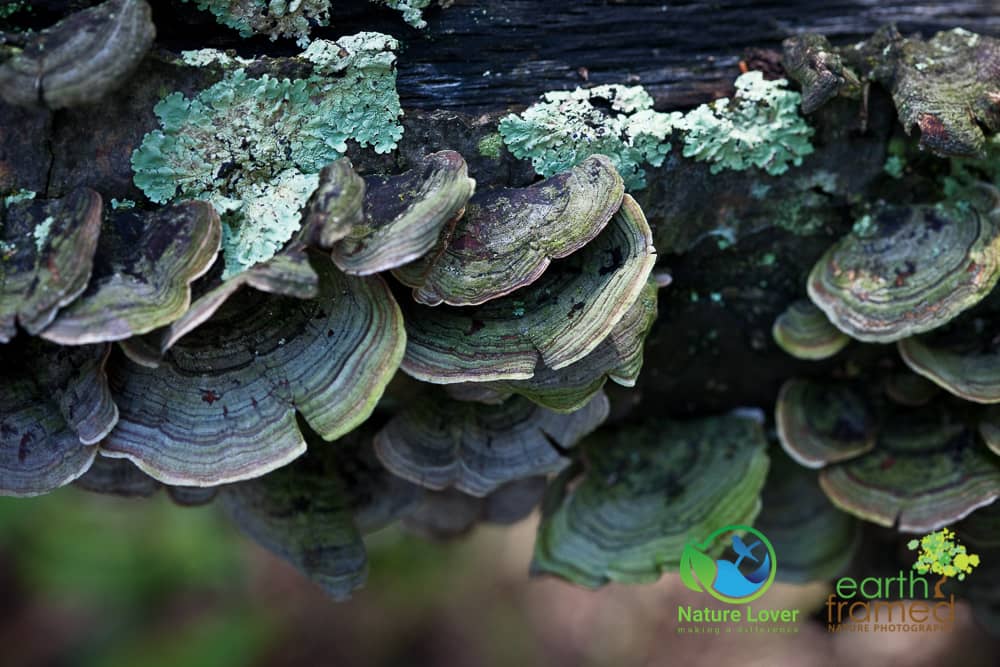
Turkey Tails can be found in large numbers throughout the park. Look for these polypore mushrooms on dead and decaying fallen trees. 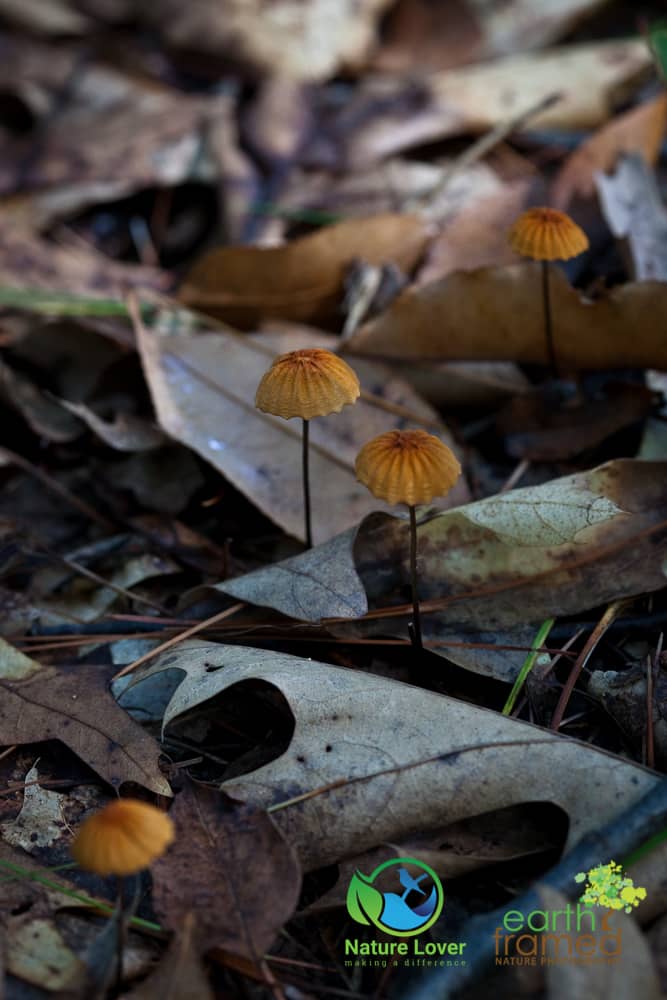
This tiny, umbrella like mushroom is part of the Marasmius genus of mushrooms. That sounds like it helps to narrow it down when identifying it but there are over 500 species in this genus. Many of these types of mushrooms will grow in fairy rings.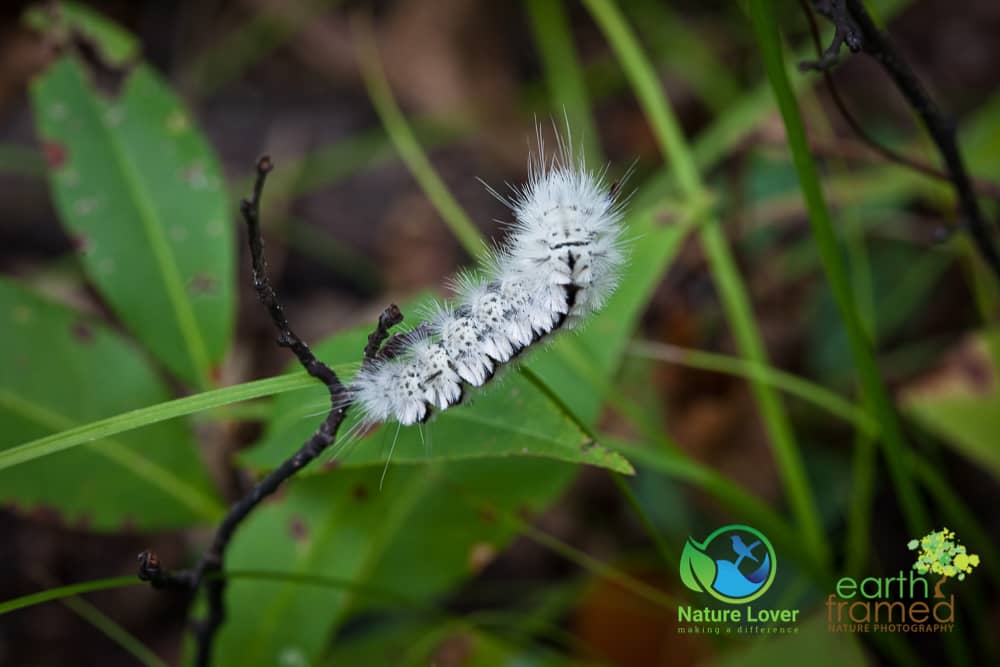
We spotted this bright white caterpillar on our walk. I didn’t see any black tufts but it still might be a Hickory Tussock Moth. What do you think?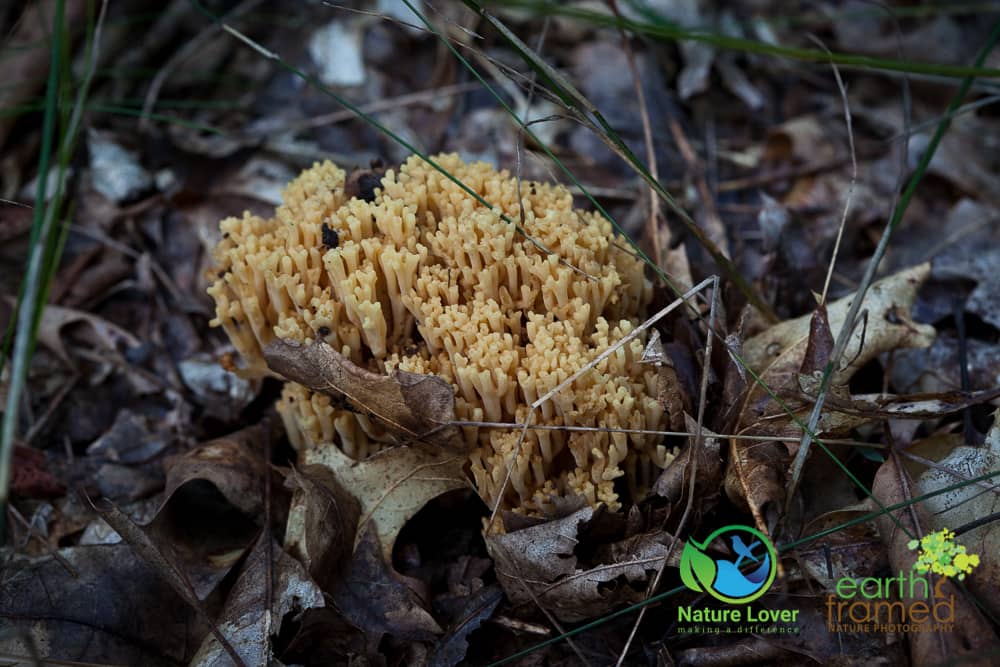 Chitra spotted this Coral Fungi growing on the ground, among the leaf debris. I do not often see any type of coral fungi in the Pinery, but I’m sure it’s there, when the weather conditions and growing conditions are right.
Chitra spotted this Coral Fungi growing on the ground, among the leaf debris. I do not often see any type of coral fungi in the Pinery, but I’m sure it’s there, when the weather conditions and growing conditions are right.
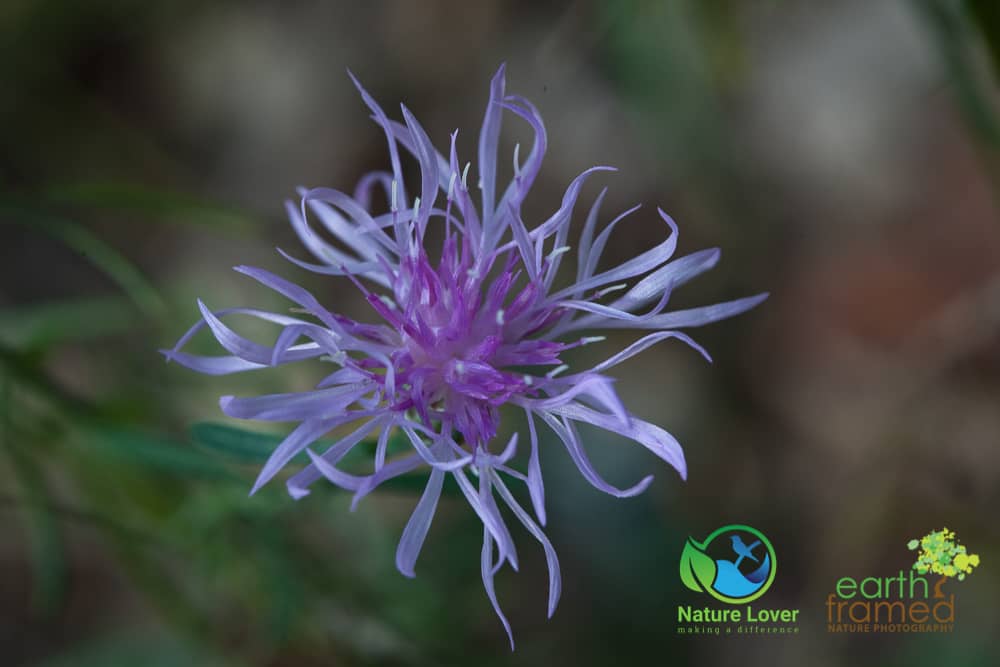
Knapweed is an invasive, non-native plant that belongs to the sunflower family. There are five different species in Ontario now, the most prevalent being spotted knapweed. These plants were accidentally brought to Canada from Europe in the 1800s. The Pitcher’s Thistle resembles knapweed, but is actually a native species and is considered threatened. The above wildflower is the Spotted Knapweed.
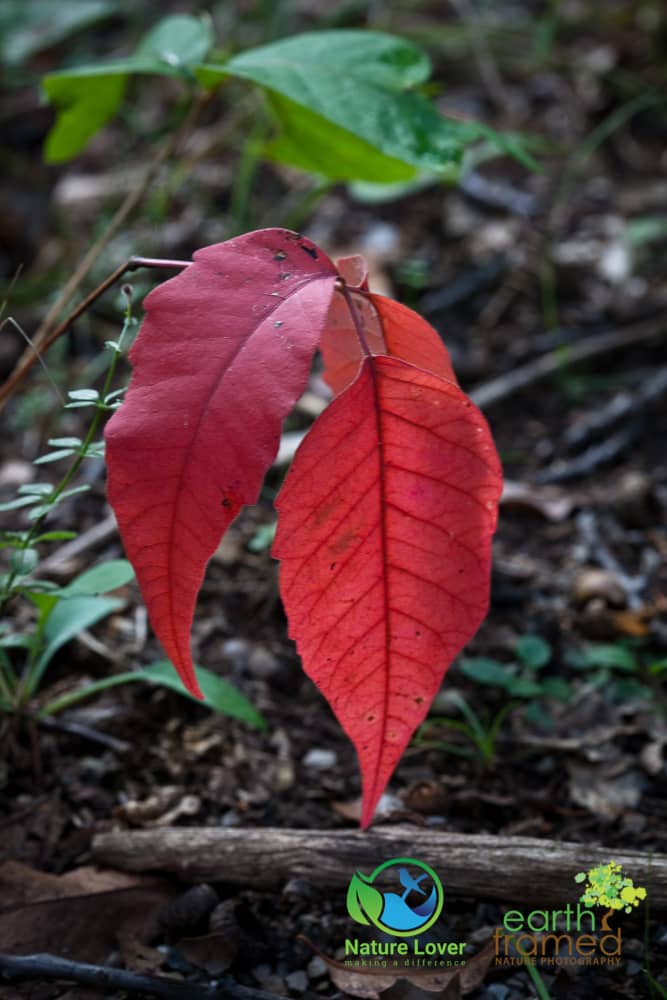
Even poison ivy turns a beautiful colour in the fall. It’s important to be able to identify this plant during the autumn as well. The oils of this plant can give some people an itchy, blistering rash, but it isn’t actually poisonous. And don’t worry about your pets getting into it, which they will., because their fur usually protects them from the urushoil, which causes the rash. This won’t protect you though, because the oily urushiol that is on their fur can still make you itchy. Give your pets a good bath if you catch them in poison ivy, and be sure to wear gloves.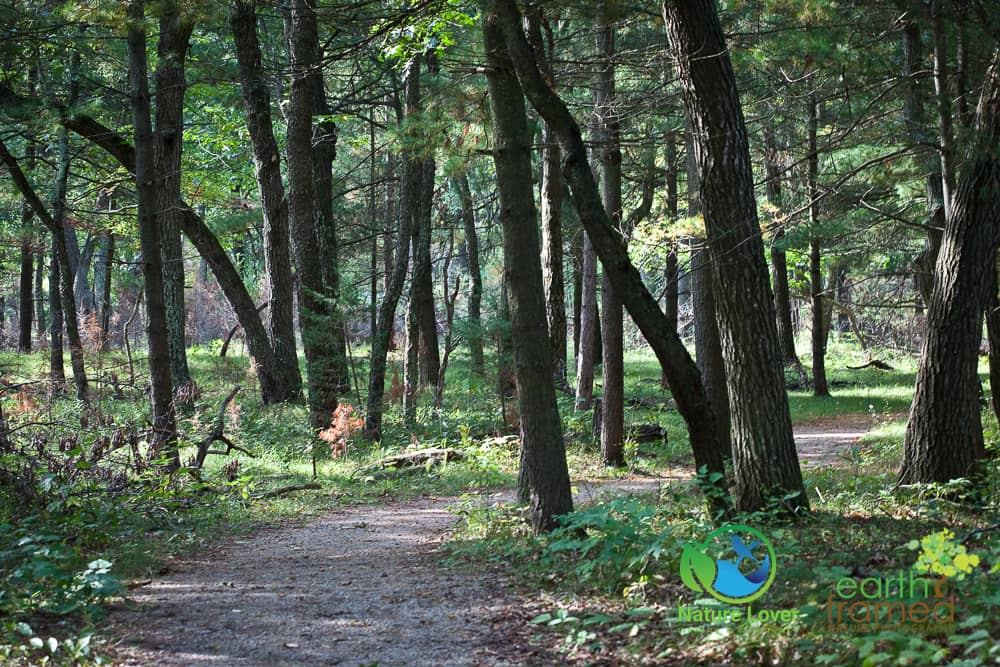
The trail gently meanders through the oak savanna.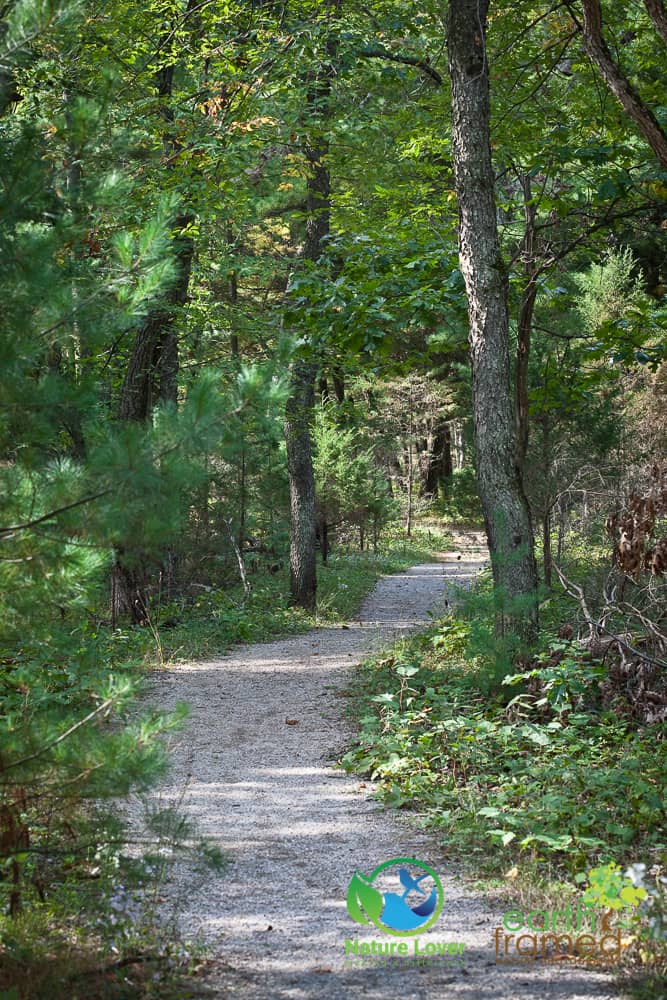
This trail can be very nice during a hot summer day. There is enough shade and often there is a cool breeze coming off the Old Ausable River, especially as you walk closer to it.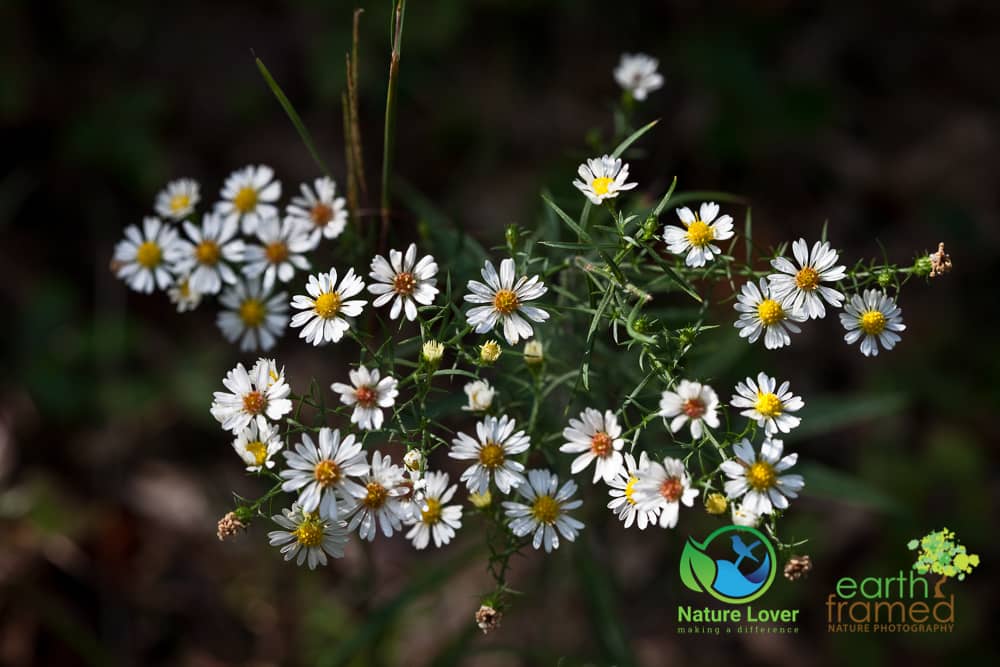
One type of aster or another can be found spring, summer and fall. There are so many different species of these, that it can be difficult to identify them.
Any time of year you can enjoy the Pinery’s Heritage trail. Each season offers something unique to identify and enjoy. This is also a fantastic trail to snowshoe on in the winter.


